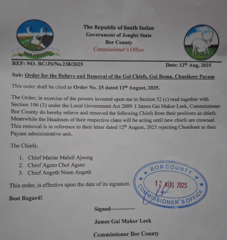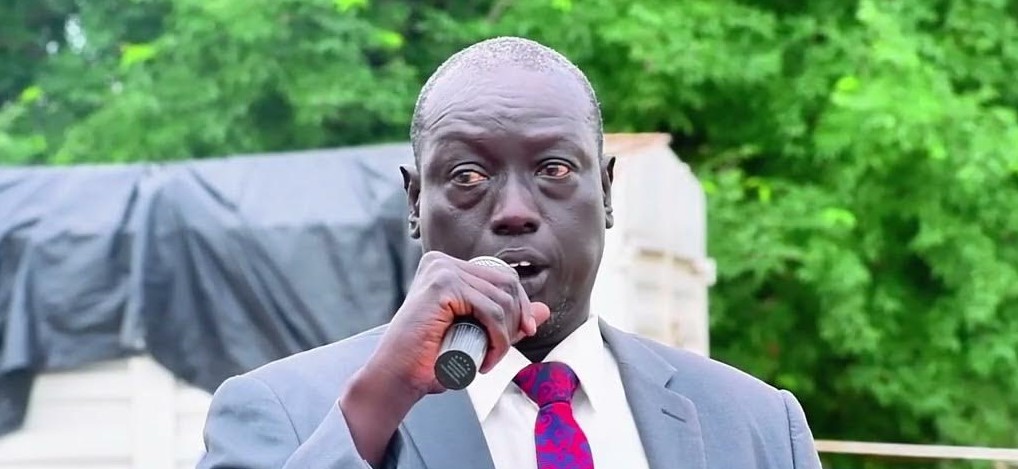The commissioner of Jonglei State’s Bor County, James Gai Makor, has dismissed three traditional community chiefs in Goi Boma after they opposed their inclusion in the newly established Chueikeer Payam.
The chiefs, Mariar Maluil, Aguto Chol, and Angeth Noon, were removed from their positions following a letter they wrote on 12 August 2025 rejecting Goi Boma’s integration into the new administrative unit.
In a dismissal letter issued on the same day, Commissioner Gai cited powers granted to him under the Local Government Act of 2009.
“I, James Gai Makor Leek, commissioner of Bor County, do hereby relieve and remove the following chiefs from their positions,” the letter stated.
The letter further specified that the chiefs were being removed for “rejecting Chueikeer as their payam administrative unit.”
The commissioner’s letter also stated that the headmen of the chiefs’ respective clans would act as temporary replacements until new chiefs are appointed.
Angeth Noon, speaking on behalf of the dismissed chiefs, rejected the commissioner’s decision, claiming their letter was not a personal act of defiance but rather a reflection of the community’s demands.
“We rejected our dismissal by the commissioner because we are community leaders of Gol. The community had sat and agreed in a meeting that we are not going to be part of the new payam because the conflict among the communities in Chueikeer has not been finalized,” he explained. “Why would a commissioner suspend those we do not want to be part of the conflict and leave those who are part of the conflict? Let them make peace first, and then we will join Chueikeer.”
Bol Deng Bol, the chairperson of the Bor-based advocacy group Intrepid South Sudan (ISS), who doubles as the chairperson of the Jonglei Civil Society Network, urged the commissioner to reinstate the chiefs
immediately, emphasizing that free expression and disagreement are not crimes and should
not be treated as such.
“These chiefs have their views and concerns; they believe the timing is not right, and
likely have valid reasons. Instead of dismissing them, their voices should have been heard,” Deng stated.
He criticized the decision as “not healthy governance,” arguing that leadership requires
maturity, tolerance, and dialogue, not arbitrary actions. He urged the Jonglei government to
review the new payam policy and engage in dialogue and consensus-building to resolve
resistance or conflict.





